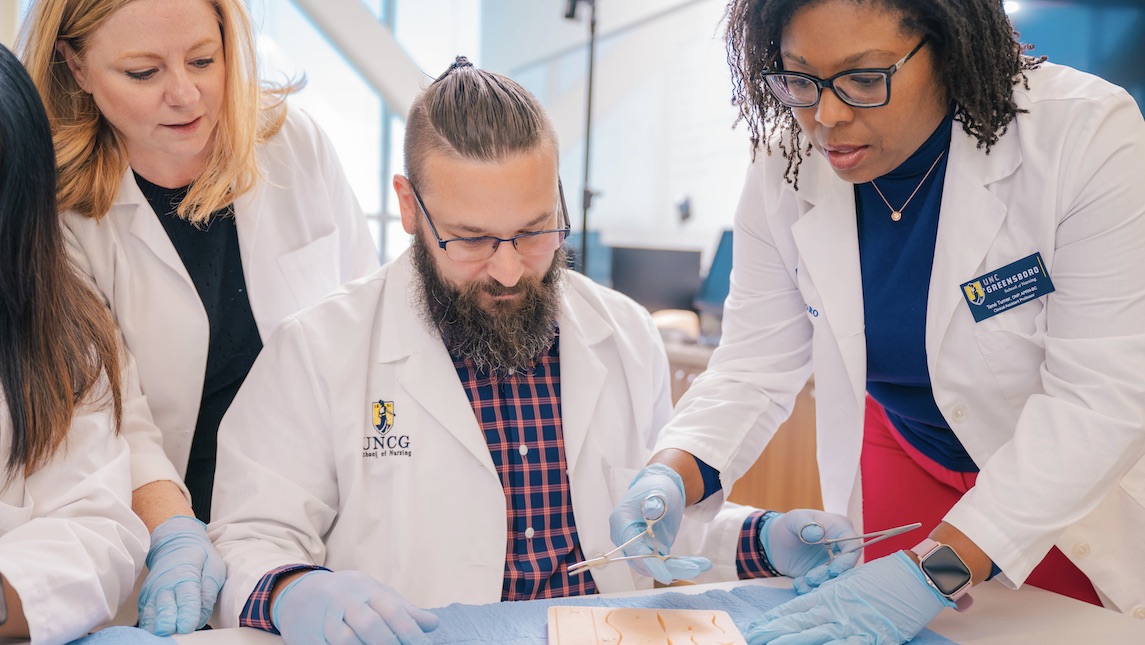An experienced pediatric nurse who now works in health-care management, Julie Barnes ‘96 wants to get back to working directly with patients, this time with advanced knowledge of medical and health care across the lifespan. Sridevi Mareddy, who’s worked as a nurse in different settings around the globe, wants to influence health care policy at every level. And paramedic-turned-nurse Adam Brown hopes to continue to work in emergency care with knowledge and clinical experience that applies to a variety of primary care settings.
Despite their diverse backgrounds, each of them is finding UNCG’s School of Nursing new family nurse practitioner (FNP) concentration to be a crucial step toward realizing their dreams.
“As a board-certified family nurse practitioner for over 35 years, I am delighted that UNCG has this option,” says School of Nursing Dean Debra Barksdale. “FNPs make critical contributions to primary health care as the overall primary care physician workforce continues to decline. The UNCG FNP graduates will fill critical gaps in healthcare access.”
Preparing students for highly valued careers
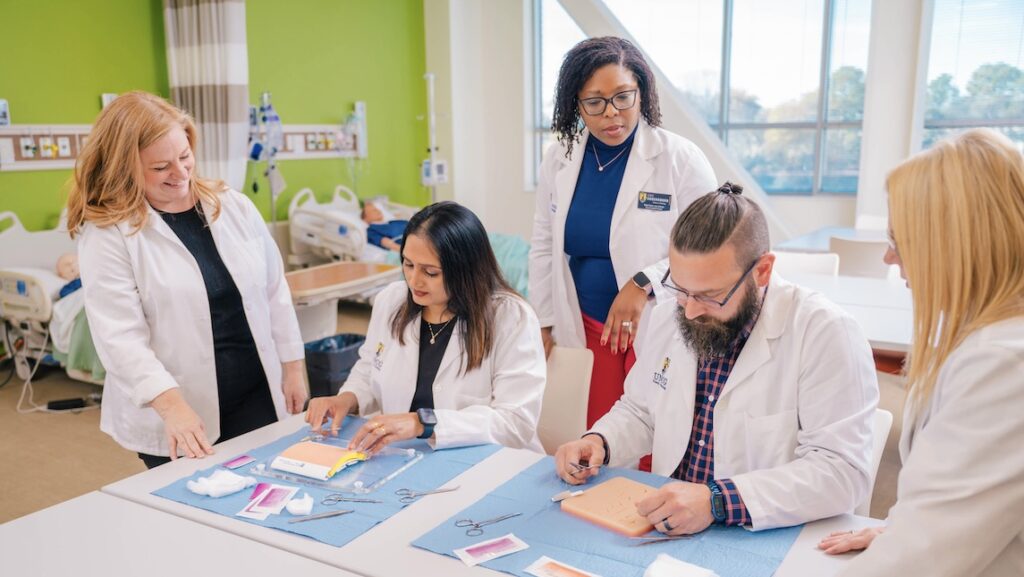
Family nurse practitioners deliver a wide variety of health-care services to patients of all ages, from infants to seniors, including prevention, wellness, treatment, and management. They perform physical exams; order and perform diagnostic tests; diagnose and treat chronic and acute illnesses, conditions, and injuries; prescribe medication; and more, under the umbrella of primary care.
Launched in Fall 2023, the family nurse practitioner option is offered in the master’s of science in nursing program and provides flexible options for students. Using a hybrid delivery format, the FNP option is a combination of in-person and online classes, some held at specific times of the week and some available asynchronously. The School of Nursing provides all clinical practicum sites for its FNP students with qualified preceptors, for example NPs, MDs and PAs from a variety of clinical settings.
FNP is the most desired nurse practitioner specialty among employers and students, according to the American Association of Colleges of Nursing. Graduates of UNCG’s program can seek board certification from either the American Academy of Nurse Practitioners or the American Nurses Credentialing Center. Board-certified FNPs can then apply for state licensure and approval to practice.
Barnes: ‘I know the quality of education I’m going to get. I’ve lived it.’
Barnes and Mareddy hope to be among the first graduates in Spring 2025. Both attend full-time.
Barnes earned her bachelor’s degree from UNCG and says being admitted to the program “just felt like I was going home.”
She calls pediatrics her first love, but during the COVID-19 pandemic, she had the chance to work in Atrium Health’s hospital vaccine clinic.
“It reignited my passion for direct patient care. I found myself not just caring for those people as they’re getting their vaccine but providing a lot of education to them,” Barnes says. “It was a really life-giving experience for me – totally unexpected.”
Having earned a bachelor’s degree in nursing from UNCG in 1996, she was excited to learn about UNCG’s FNP concentration.
“I’d researched a ton of programs, and so I had a lot of questions,” says Barnes. I know the quality of the nursing school. I know the quality of education I’m going to get. I’ve lived it and benefited from it already. This was just the logical next step for me.”
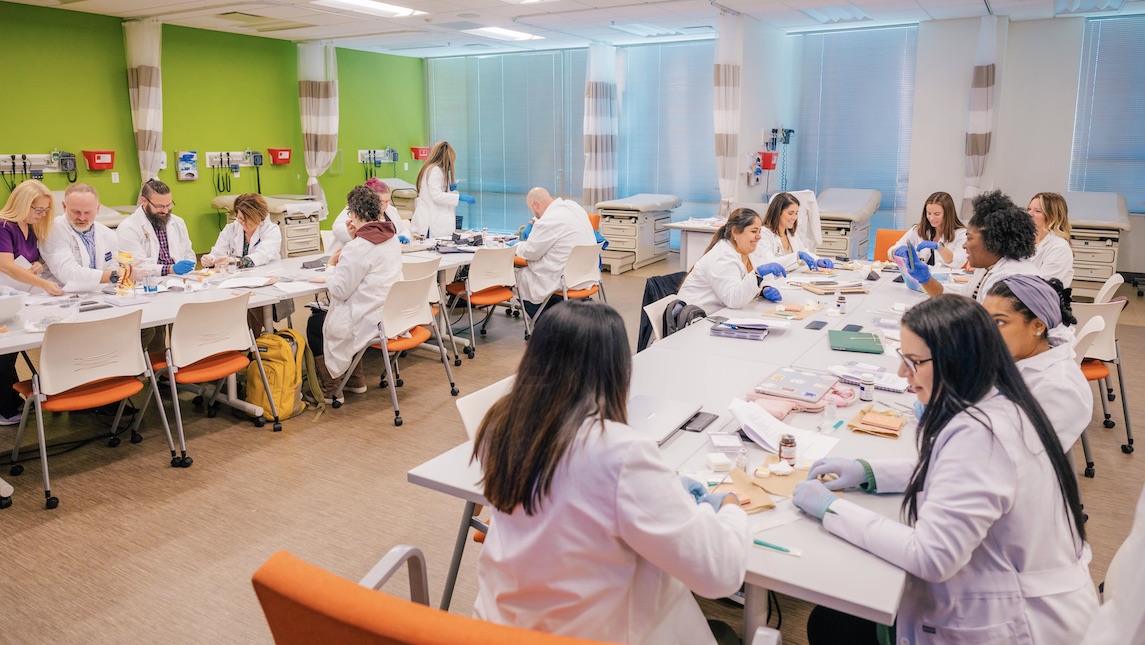
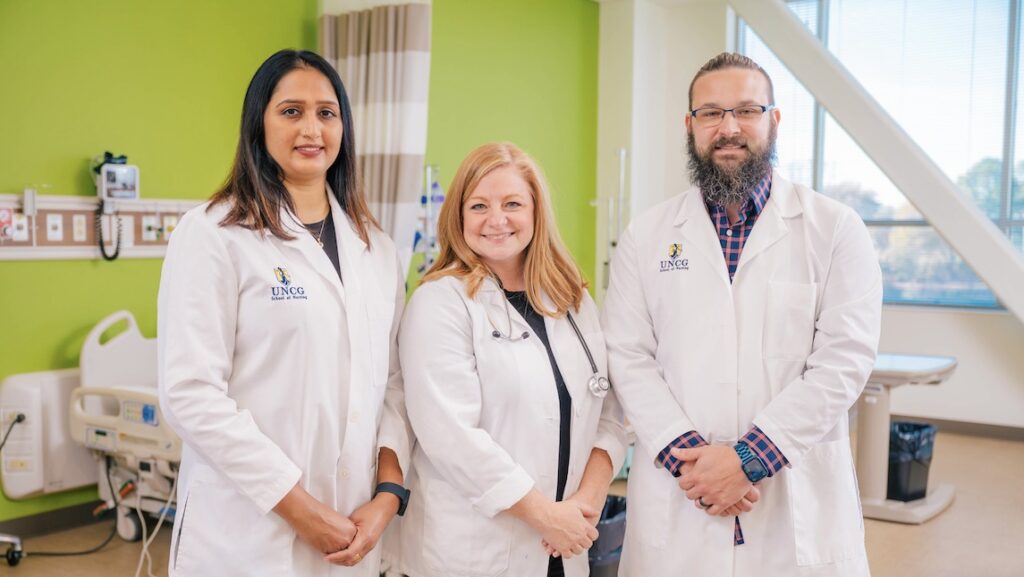
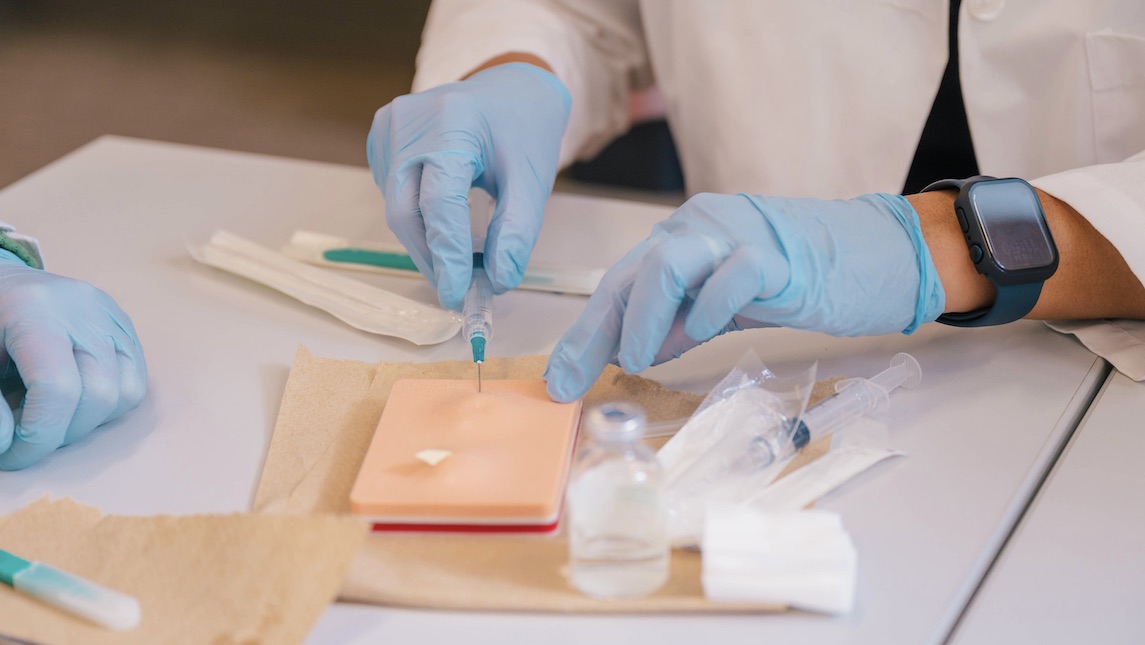
Mareddy: ‘I was captivated by the hybrid program’
Mareddy’s introduction to UNCG’s graduate nursing programs came from colleagues who’d attended the University. “My independent research confirmed UNCG’s strong reputation and accreditation in the field of nursing programs,” she says.
Several factors played into Mareddy’s decision to enroll: the range of master’s specializations available, the diverse clinical placement opportunities, and the hands-on approach.
“I was also captivated by the hybrid program, which offered a unique opportunity to interact with professors and access information seamlessly,” she says.
Mareddy has, she says, “a deep-seated passion for immersing myself in health-care advocacy and policy efforts. My aim is to effect meaningful change in health-care policies, spanning local, state, and even national levels.
“While the program’s curriculum can be demanding, it is also highly gratifying as it provides me with the foundational knowledge essential for my career as an FNP,” she adds.
Brown: ‘The teachers have been extremely helpful and knowledgeable.’
Like Mareddy and Barnes, Brown has extensive experience in nursing and sees the FNP concentration as a stepping stone to his future. He was a paramedic for 24 years and has worked as a nurse for the past 8 years.
“My goal is to continue to work in emergency care, and I wanted … to have the breadth of knowledge and not be limited on the population that I can care for,” Brown says. “I really enjoy helping people when they’re going through the worst experiences they may ever have to deal with.”
As a part-time student with plans to graduate in 2026, Brown says he’s had a great experience at UNCG. “The teachers have been extremely knowledgeable and helpful throughout the process. And the newer campus at Union Square has a lot of technology and advances that are helping.”
To learn more, visit UNCG’s family nurse practitioner concentration webpage or contact program coordinator Dr. Amber Vermeesch at alvermeesch@uncg.edu.
Story by Dee Shore, AMBCopy
Photography by Sean Norona, University Communications
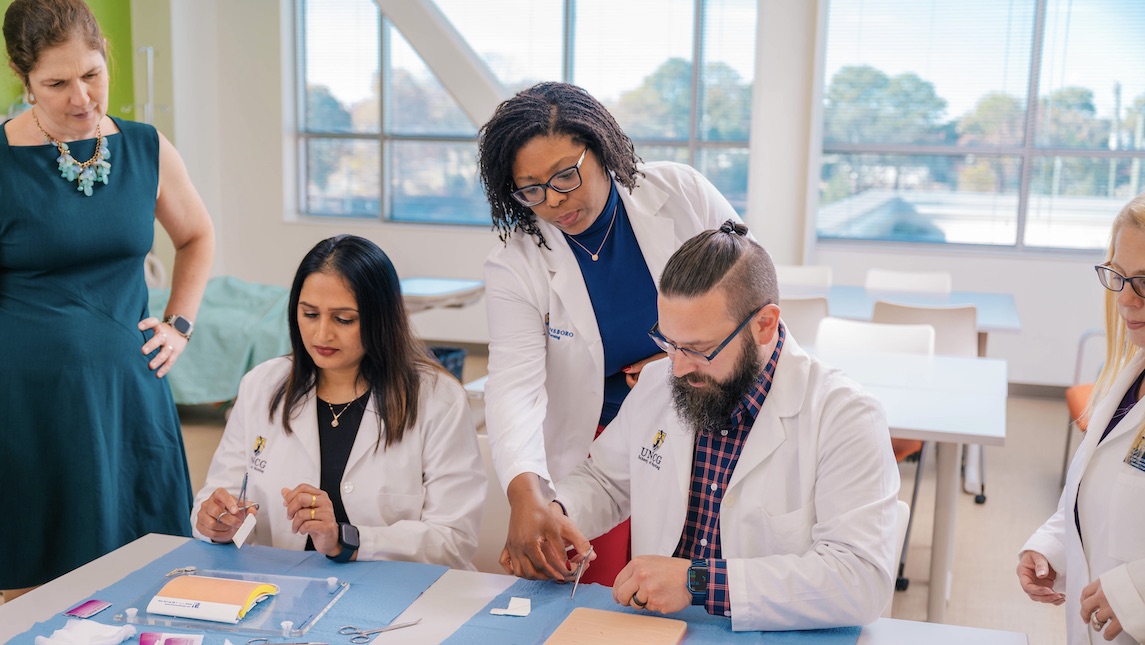
Want to be an FNP?
